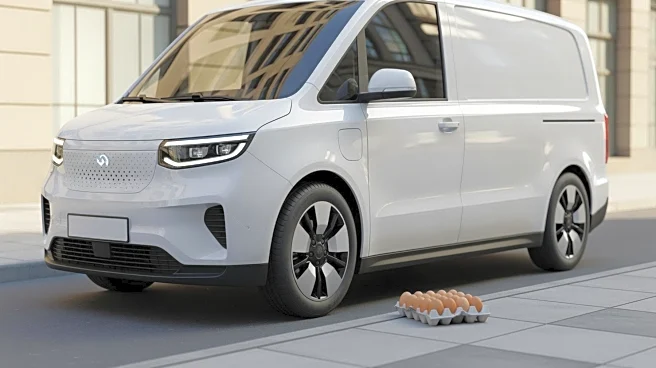What's Happening?
Amazon is set to deploy over 800 new Mercedes-Benz eSprinter vans across its UK parcel delivery network, enhancing its fleet with electric vehicles. This move follows Amazon's earlier integration of electric heavy goods vehicles (eHGVs), bringing its total
UK fleet to over 160 eHGVs. Concurrently, Happy Eggs is adding 40 electric refrigeration units with rooftop solar to its fleet, manufactured by Sunswap. These units can operate for extended periods on a single charge, reducing emissions and operational costs.
Why It's Important?
The expansion of electric vehicle fleets by Amazon and Happy Eggs represents a significant step towards reducing carbon emissions in the logistics and transportation sectors. This initiative aligns with global efforts to combat climate change and transition to sustainable energy sources. The adoption of electric vehicles can lead to substantial environmental benefits, including reduced reliance on fossil fuels and decreased greenhouse gas emissions, while also offering operational savings.
What's Next?
Amazon's rollout of additional electric vehicles will depend on the development of charging infrastructure, requiring collaboration between industry and government. Happy Eggs anticipates significant reductions in emissions and operational costs, potentially setting a precedent for other companies in the agricultural logistics sector to adopt similar technologies.
Beyond the Headlines
The move towards electric fleets highlights the logistical challenges and opportunities in transitioning to sustainable transportation solutions. It underscores the importance of infrastructure development and industry collaboration to support widespread adoption of electric vehicles, which could lead to long-term shifts in transportation and logistics practices.

















